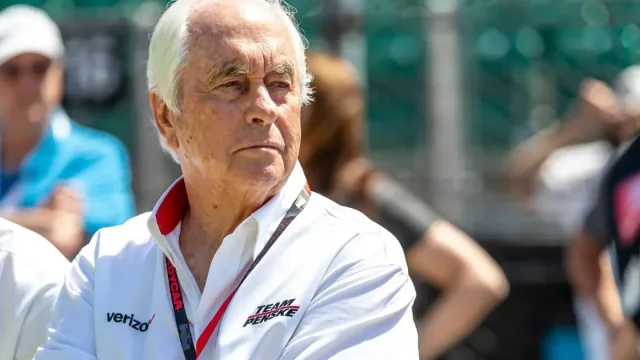Key Takeaways
- NASCAR’s leniency towards Austin Cindric’s penalty raises questions about favoritism towards Team Penske and its influence in disciplinary matters.
- Historical penalties for intentional wrecking suggest a precedent that Cindric’s punishment does not align with, indicating potential bias.
- Critics argue that financial clout and sponsorships may affect NASCAR’s decision-making, favoring larger teams like Penske over smaller ones.
- Inconsistencies in penalty enforcement, such as Cindric’s 50-point deduction compared to others’ lighter penalties, further fuel perceptions of favoritism.
- Fan dissatisfaction with NASCAR’s regulatory framework suggests growing concerns over fairness and accountability in the sport.
NASCAR’s Precedent on Intentional Wrecking
While NASCAR has historically enforced strict penalties for intentional wrecking, the inconsistency in its disciplinary actions raises notable questions about the integrity of its decision-making process.
The precedent set by suspending drivers like Bubba Wallace and Chase Elliott for intentional wrecking established a clear expectation of accountability. However, the recent handling of Austin Cindric’s incident, where he received only a 50-point deduction and a fine, contradicts this established norm.
Such divergent penalty enforcement not only undermines driver accountability but also erodes race integrity, as fans react with confusion and frustration. The disparity in consequences suggests a troubling ambiguity within NASCAR’s framework, challenging the sanctity of its regulatory standards and potentially nurturing a perception of favoritism in the sport.

Why NASCAR Handled Cindric’s Incident Differently
Although NASCAR officials justified their leniency in handling Austin Cindric’s incident by citing the unique characteristics of the Circuit of the Americas (COTA) as a road course with lower speeds, such reasoning exposes a troubling inconsistency in the league’s disciplinary framework.
“Driver was traveling at a slower pace on the road course (vs an intermediate/superspeedway) Dillon had no significant impact or damage; was able to drive on. No caution.” – (Bob Pockrass)
The penalty rationale, hinging on the absence of a caution flag, sidesteps the gravity of Cindric’s actions and the potential consequences for competitive integrity.
“so the message of the day from nascar is that if any driver is looking to retaliate against someone, wait until you’re at a short track or road course, cause going slower means it’s ok.” – (fan reaction)
Additionally, the new playoff waiver rule complicates matters, as a suspension would have severely impacted Cindric’s championship aspirations just three races into the season.
This scenario raises questions about the application of NASCAR regulations, suggesting that playoff implications may unduly influence disciplinary decisions, thereby undermining the fairness and consistency vital for the sport’s credibility.
“The reasons are, you look at it, it is at a road course. Lower speeds, tight confines to begin with. And the result didn’t even draw a caution flag…So, those were really the reasons we chose to err on the side of letting him race this weekend in Phoenix, going with a fine and a significant driver points penalty of 50 points…this was a little bit more severe, but not deserving of a one-race suspension.” – (Mike Forde)
Inconsistency in NASCAR’s Penalty Decisions
Numerous observers have expressed frustration over the glaring inconsistencies in NASCAR’s penalty decisions, particularly in cases involving intentional wrecks.
The disparity in penalty fairness raises considerable concerns about racing integrity. For example, Austin Cindric faced a harsh 50-point penalty, yet was permitted to continue racing, while Carson Hocevar received only 25 points for a similar infraction.
Noah Gragson’s 30-point penalty for wrecking Sage Karam further highlights the erratic nature of rule enforcement by the governing body. Fan reactions emphasize a growing discontent, with one stating,
“The inconsistency with this organization is just laughable at this point.” – (fan reaction)
 Hendrick Motorsports 40th Anniversary Book” width=”1200″ height=”800″ srcset=”https://slicksandsticks.com/wp-content/uploads/2024/12/Hendrick-Motorsports-40th-Anniversary-Book.webp 1200w, https://slicksandsticks.com/wp-content/uploads/2024/12/Hendrick-Motorsports-40th-Anniversary-Book-300×200.webp 300w, https://slicksandsticks.com/wp-content/uploads/2024/12/Hendrick-Motorsports-40th-Anniversary-Book-1024×683.webp 1024w, https://slicksandsticks.com/wp-content/uploads/2024/12/Hendrick-Motorsports-40th-Anniversary-Book-768×512.webp 768w, https://slicksandsticks.com/wp-content/uploads/2024/12/Hendrick-Motorsports-40th-Anniversary-Book-630×420.webp 630w, https://slicksandsticks.com/wp-content/uploads/2024/12/Hendrick-Motorsports-40th-Anniversary-Book-150×100.webp 150w, https://slicksandsticks.com/wp-content/uploads/2024/12/Hendrick-Motorsports-40th-Anniversary-Book-696×464.webp 696w, https://slicksandsticks.com/wp-content/uploads/2024/12/Hendrick-Motorsports-40th-Anniversary-Book-1068×712.webp 1068w” sizes=”auto, (max-width: 1200px) 100vw, 1200px” />
Hendrick Motorsports 40th Anniversary Book” width=”1200″ height=”800″ srcset=”https://slicksandsticks.com/wp-content/uploads/2024/12/Hendrick-Motorsports-40th-Anniversary-Book.webp 1200w, https://slicksandsticks.com/wp-content/uploads/2024/12/Hendrick-Motorsports-40th-Anniversary-Book-300×200.webp 300w, https://slicksandsticks.com/wp-content/uploads/2024/12/Hendrick-Motorsports-40th-Anniversary-Book-1024×683.webp 1024w, https://slicksandsticks.com/wp-content/uploads/2024/12/Hendrick-Motorsports-40th-Anniversary-Book-768×512.webp 768w, https://slicksandsticks.com/wp-content/uploads/2024/12/Hendrick-Motorsports-40th-Anniversary-Book-630×420.webp 630w, https://slicksandsticks.com/wp-content/uploads/2024/12/Hendrick-Motorsports-40th-Anniversary-Book-150×100.webp 150w, https://slicksandsticks.com/wp-content/uploads/2024/12/Hendrick-Motorsports-40th-Anniversary-Book-696×464.webp 696w, https://slicksandsticks.com/wp-content/uploads/2024/12/Hendrick-Motorsports-40th-Anniversary-Book-1068×712.webp 1068w” sizes=”auto, (max-width: 1200px) 100vw, 1200px” />
Accusations of Favoritism Toward Team Penske
Accusations of favoritism toward Team Penske have surfaced amidst the ongoing turmoil surrounding NASCAR’s inconsistent penalty decisions, raising eyebrows among fans and analysts.
Critics assert that team dynamics and racing politics heavily influence these perceived leniencies, particularly regarding driver Austin Cindric.
NASCAR says no suspension for Cindric because:
Driver was traveling at a slower pace on the road course (vs an intermediate/superspeedway)
Dillon had no significant impact or damage; was able to drive on.
No caution.
a one-race suspension did not ‘feel’ appropriate https://t.co/mzGyELltxS
— Bob Pockrass (@bobpockrass) March 5, 2025
Fan reactions have been vocal, with comments suggesting that Penske’s financial clout may unduly sway NASCAR’s disciplinary actions. One remark, “Because Roger’s check cleared,” encapsulates the frustration surrounding potential sponsorship influence in favor of larger organizations.
“How many 0s were on that check to NASCAR?” – (fan reaction)
This sentiment challenges the notion of competitive fairness, as smaller teams struggle under the weight of perceived bias.
What Happens Next?
As the dust settles from the recent controversies, the future of NASCAR’s disciplinary measures remains uncertain, prompting widespread speculation among fans and analysts.
The handling of Cindric’s penalty raises substantial questions about future implications for rule enforcement across NASCAR’s oval and intermediate tracks. Observers will scrutinize whether comparable infractions will elicit equal responses, particularly considering the potential backlash from fans disenchanted by perceived favoritism toward Team Penske.
Team dynamics may also shift as drivers gauge the enforcement landscape, adjusting their approaches to risk and retaliation on track.

News in Brief: NASCAR Faces Scrutiny Over Penalty
NASCAR’s inconsistent handling of penalties, particularly in the case of Austin Cindric’s incident, raises considerable concerns about fairness and accountability within the sport. By seemingly allowing Roger Penske to evade appropriate consequences, the governing body risks undermining its credibility and the integrity of competition.
Such favoritism not only alienates fans but also sets a troubling precedent that could lead to further disregard for racing ethics. Without a clear, consistent approach, trust in NASCAR’s regulatory framework will continue to erode.
